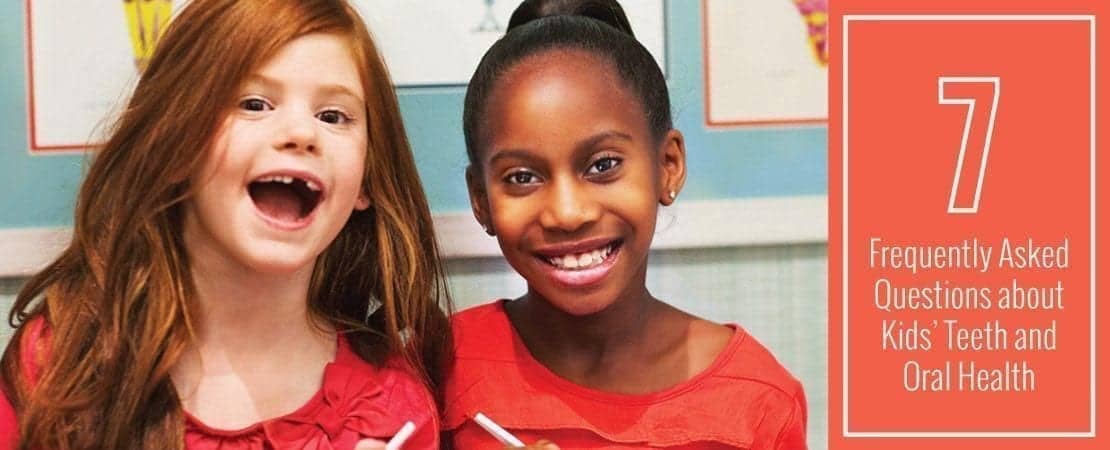We’re always happy to address your questions and concerns about your child’s oral health. Has it been more than six months since your child’s last appointment? Schedule one today!
How often should I have my kids’ teeth checked?
Regular professional cleanings help prevent both cavities and gum disease. That’s why you should schedule regular checkups every six months. Then we can make sure your child is brushing properly and hasn’t developed any cavities!
My child brushes his teeth regularly and doesn’t eat much candy, but he still seems to have new cavities whenever he gets a checkup. Why?
Your child’s teeth are still developing, so they are softer than an adult’s teeth. This makes his teeth more vulnerable to cavities. Until your child’s teeth are fully developed (in his late teen years), here are a few tips to help him prevent cavities:
- Make sure he’s brushing along the gum line well enough to remove all food particles.
- Try having him floss while he’s watching his favorite movie or TV show.
- Talk to us about developing a regular fluoride program for your child.
- Ask us about putting sealants on your child’s teeth.
What are sealants, and is it necessary for my child to get them?
Sealants are clear or shaded plastic applied to the teeth to keep them cavity-free. Sealants fill in the grooved and pitted surfaces of the teeth, which are hard to clean, and shut out food particles that could get caught, causing cavities. Applying sealants is a relatively inexpensive procedure – especially when compared to the cost of treating cavities and other oral health issues.
My daughter is afraid to visit the dentist. What do you suggest that might help her relax?
This is a common fear, even among adults! Try to avoid using words like “needle” or “drill” that could cause unnecessary fear for her. And please let us know if your child is apprehensive about her visit. Our staff members are experienced in dealing with anxiety and will explain all procedures in a positive and pleasant way to help her avoid any negative feelings toward dentistry.
There are so many types of toothpaste – which is the best kind to use?
First, check for a toothpaste with an American Dental Association (ADA) Seal of Acceptance. Second, choose one that contains fluoride – but only if your child is age 3 or older. For children under age 3, use water and a soft-bristled brush. Third, find a flavor your child likes – we don’t want him to dislike brushing his teeth just because he doesn’t like the taste!
What kind of toothbrush should my child use? Are electric toothbrushes better than manual toothbrushes?
Look for a toothbrush with soft, round nylon bristles, rather than medium or hard bristles. You can read more about how to help your child brush her teeth on our website.
Manual brushes are effective, but studies have shown electric toothbrushes can perform even better, if they’re used right. The most important thing is finding out what works best for your child. If the noise or vibration of an electric toothbrush bothers your child, then use a manual one. But if she has trouble brushing for an appropriate amount of time, consider buying her an electric toothbrush with a timer, so she knows exactly how long to brush.
Is drinking a lot of soda bad for the teeth?
Yes, any sugar-filled drink can corrode tooth enamel and lead to tooth decay. Because children’s teeth are still developing, limiting sugary drinks for kids is especially important. Read our September blog post for more about the importance of nutrition to a child’s oral health.
For more questions and answers, check out our website’s FAQ page. If you have a question that wasn’t answered here or on our website, please contact us directly. We love hearing from you!
